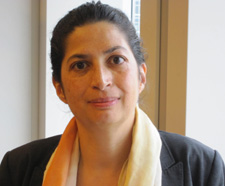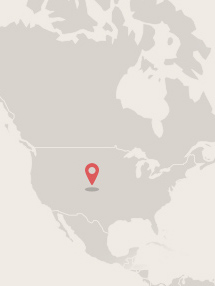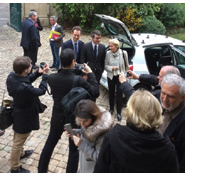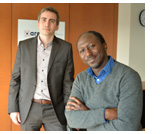 |
Regulation in action
What is 5G? Answers in a new Arcep report!
5G is above all the successor to 4G, a technology that will enable digital devices to communicate wirelessly. But 5G is also a technology whose contours have yet to be fully established, currently in the process of being standardised and whose uses are still to be defined.
At a time of tremendous industrial, commercial and policy-related momentum around 5G, Arcep wanted to meet with the ecosystem’s stakeholders to understand the work being done today. These meetings and the research performed are reflected in a report that was published last week.
The report provides a snapshot of the technologies that are currently being developed, and explores the ways in which 5G will be able to keep its promise to adapt to the needs of a wide variety of vertical sectors: connected cars, smart cities, eHealth, next generation entertainment, industry 4.0, smart grids, etc.
Three main use cases defined by the International Telecommunication Union (ITU), each with their own set of requirements, are emerging to meet these different types of need:
- mMTC – Massive Machine Type Communications – for the Internet of Things;
- eMBB – Enhanced Mobile Broadband – for services that require an ever faster connection;
- uRLLC – Ultra-reliable and Low Latency Communications – for services that need a very high degree of reactivity and a guarantee of reliable transmission.
The report also provides a summary of a number of 5G development initiatives being carried out in Europe and around the world. And, finally, its sketches out the main issues and challenges that will emerge in the coming years as we near the deployment stage: defining a common standard, expected performance levels, rollouts schemes, net neutrality…
Arcep report (in French)
|  |
 |
|
On our radar
| |
Cécile Dubarry, Director General of Arcep
Cécile Dubarry has been the new Director General of Arcep since 1 March. An engineer and graduate of the Ecole des Mines, earlier in her career she was Head of the Digital economy department for the Ministry of the Economy and Finance’s Directorate-General for Enterprise and Industry (DGE), where she headed up the France très haut débitnational superfast rollout scheme.Find out more
| 
|
|
| |  | |
News from around the world
What will become of net neutrality in the United States?
In January 2017, Ajit Pai took over as chairman of the US telecom regulator, the Federal Communications Commission (FCC), of which he had been a member since 2012.
Known for his opposition to the Open Internet Order adopted by the FCC in 2015, one of his first decisions was to put an end to investigations into several zero rating offers that were initiated under his predecessor, Chairman Tom Wheeler.
Zero rating refers to a commercial practice that consists, for instance, of operators not deducting the traffic generated by a given service or type of service from customers’ data allowance, whereas all other uses are.
Consequence: an outcry from more than 170 organisations which signed an open letter calling on the FCC to continue its actions to defend net neutrality.
Read the open letter
|
| |
 |

Arcep likes
‘Let’s Uberise the State! Before somebody else beats us to it!’ say Clément Bertholet and Laura Létourneau, published by Armand Colin
‘Let’s Uberise the State before somebody else beats us to it’ is the cry at the heart of a new work by Clément Bertholet and Laura Létourneau, policy officer for Arcep’s “Open internet” unit and both Corps des mines senior officials.
‘The State is on the verge of being Uberised’, they tell us. Digital industry players, starting with Google, Apple, Facebook and Amazon, encroach a little more each day on the dominion of government services. If this Uberisation is worrisome to some, it should instead be seen as a unique opportunity to transform government and endow it with purpose and values. But the State cannot do it alone. It is up to us to work together to build a State now become platform, an indispensable but open State, a sovereign State.
Find out more (in French)
|  | | | | |
|
 |
Field notes
Operation cards on the table in Bordeaux with monreseaumobile.fr
 On 22 March, Bordeaux was the place to be!
On 22 March, Bordeaux was the place to be!
With the Prefect of the Nouvelle-Aquitaine region, members of the Regional Council and the media in attendance, Arcep unveiled the new enhanced mobile coverage maps, and officially launched its mapping tool that allows users to compare each mobile operator’s coverage: monreseaumobile.fr
In a bid to more accurately reflect users’ true experience, over the past several months Arcep has been working on defining and improving the new mobile coverage maps for voice and texting services. Binary up to now (area covered/not covered), these maps now include four levels of assessment: very good coverage, good coverage, limited coverage, no coverage.
But why Bordeaux?
A full-size trial is currently being conducted on these maps in a pilot region: Nouvelle-Aquitaine. This will enable Arcep to test the maps’ reliability by carrying out measurement campaigns in the field with the help of “test cars” that will travel the region.
Mobile coverage data for the whole of Metropolitan France will be available, in this new format, starting in September 2017.
monreseaumobile.fr
|  |
 |
Arcep, telling it like it is
 In 2003, Arcep participated in the creation of FRATEL, the network of French-speaking telecommunications regulators. The objective: to establish and strengthen collaboration and dialogue between French-speaking regulators on matters of common interest.
In 2003, Arcep participated in the creation of FRATEL, the network of French-speaking telecommunications regulators. The objective: to establish and strengthen collaboration and dialogue between French-speaking regulators on matters of common interest.
Arcep helps to sustain this network on a daily basis, serving as its permanent executive secretary. In tandem with the President of FRATEL (a rotating position) and its Coordination committee (also rotating), Arcep implements the annual action plan, manages the network’s website and produces its annual report, in addition to taking an active part in planning the programme for its annual meetings and seminars. The theme of the next seminar, being held on 8 and 9 May in Abidjan, is one that is generating a great deal of talk: “How can regulation help promote an open internet?”
Fratel website
Antoine Samba & Julien Gilson
"International" Team
|  |
 |
5 and 6 April in Lyon
SIDO – The smart object showroom
Lyon will be playing host for a two-day trade show devoted to the Internet of Things, which will include a series of encounters and conferences that offer a chance to discover the latest innovations, best practices and IoT market experts.
Find out more
11 April in Paris
The city’s digital stakeholder ecosystem – a workshop hosted by the “Internet cities” association
On 11 April, Arcep Chairman Sébastien Soriano will be participating in a workshop hosted by the Villes Internet (Internet cities) association: "The city’s digital stakeholder ecosystem." This workshop is part of the assignment given to Akim Oural, “Digital regional development and new technologies” councillor for the European metropolis of Lille: to produce an official report on the topic of “shared smart cities” with the help of a working group (of which Villes Internet is a part).
12 April in Paris
#CroissanceConnectée – A morning devoted to SMEs’ digital transformation
While the French Digital Council (CNNum) handed its recommendations on the digital transformation of businesses in France to the Government in early March, it is now inviting anyone wanting to be involved in this process to come discuss the topic on 12 April next. This will also be an opportunity to raise the Presidential candidates’ awareness of this major issue.
Find out more
| |

 |
|  |
|

